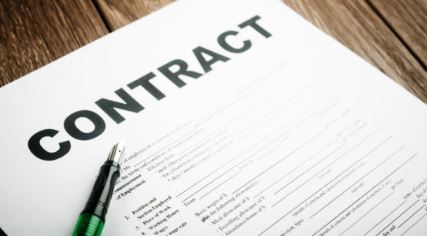Miller Barondess, led by partners Dan Miller and Amnon Siegel, obtained injunctions against foreclosures by lenders based on the equitable doctrines of frustration of purpose and impossibility of performance. The first was in the Great Recession of 2008, based on the credit crunch and the inability of a building owner to sell units because financing was not available. The second was in the COVID-19 Recession of 2020, based on a governmental order temporarily prohibiting the intended use of the property. In each case, despite the property owner’s default on the loan, the court (or arbitrator) issued an injunction against foreclosure. The cases are described in detail below.
During the 2008 recession, Miller Barondess partner Dan Miller represented a real estate developer who was unable to sell the requisite number of condominium units resulting in a default under the loan agreement. Facing an imminent foreclosure sale, Dan obtained a preliminary injunction preventing the lender from foreclosing on a large condominium project based on impossibility of performance due to the economic crisis. The unforeseen and unprecedented credit crisis made it ‘impossible’ for the real estate developer to obtain financing necessary to sell units in a new building in Long Beach. So the developer prevailed despite being in clear breach of contract. The ruling included a quote from former Federal Reserve Chairman Alan Greenspan who testified before Congress, “We are in the midst of a once-in-a-century tsunami.” Real estate developers may be able to assert the equitable doctrines of impossibility and frustration of purpose to prevent lenders from foreclosing on real estate projects in light of the current pandemic just as this developer was able to do so based on the economic/credit crisis of 2008. (Gateway & 4th, LLC, et al. v. Pacific Cityhome, LLC, et al., JAMS Arbitration No. 1200027669) [Read the Ruling]
For the first time since the above ruling, equitable doctrines such as impossibility/impracticability and frustration of purpose could have wide applicability due to the current pandemic, as evidenced in the ruling below.
On November 5, 2020, Miller Barondess partner Amnon Siegel secured a ruling that parties can be excused from performing under a commercial property loan agreement due to government shutdowns caused by the COVID-19 pandemic that impact use of the property. The ruling, citing World War 2-era cases regarding the frustration of purpose doctrine, granted a preliminary injunction preventing foreclosure on Miller Barondess’ client based on frustration of purpose due to the pandemic. The property owner, Miller Barondess’ client, had purchased property in Glendora to construct and operate a gym and had leased the property to a nationally recognized fitness center operator for that purpose. Defendants were well aware of the purpose of the purchase and assisted Plaintiff in obtaining the entitlements necessary to operate a gym on the property before the sale closed. Plaintiff purchased the property from Defendants in November 2019, paying a $1 million down payment and financing the remainder of the $5.25 million purchase price with a loan from Defendants, secured by a deed of trust. The first payment on the loan came due, however, on April 1, 2020, just weeks after the COVID-19 emergency orders rendered it illegal to operate indoor gyms, and before Plaintiff could begin construction. Now unable to use the property as intended, Plaintiff defaulted on the Loan, and Defendants gave notice of their intent to proceed with a non-judicial foreclosure sale of the property. Plaintiff moved for a preliminary injunction to halt the foreclosure, which was heard by the Court only days before the sale was scheduled to take place. At the hearing, the Court ruled that, as the COVID-19 pandemic and resulting government orders prohibited Plaintiff from using the property for its intended purpose, Plaintiff had shown a reasonable likelihood that its performance under the loan would be excused under the doctrine of frustration of purpose. The Court thus granted the preliminary injunction and halted the foreclosure pending a full adjudication on the merits. (BV Glendora, LLC v. Palo Plesnik, et al., Los Angeles County Superior Court Case No. 20STCV30885) [Read the Ruling]

